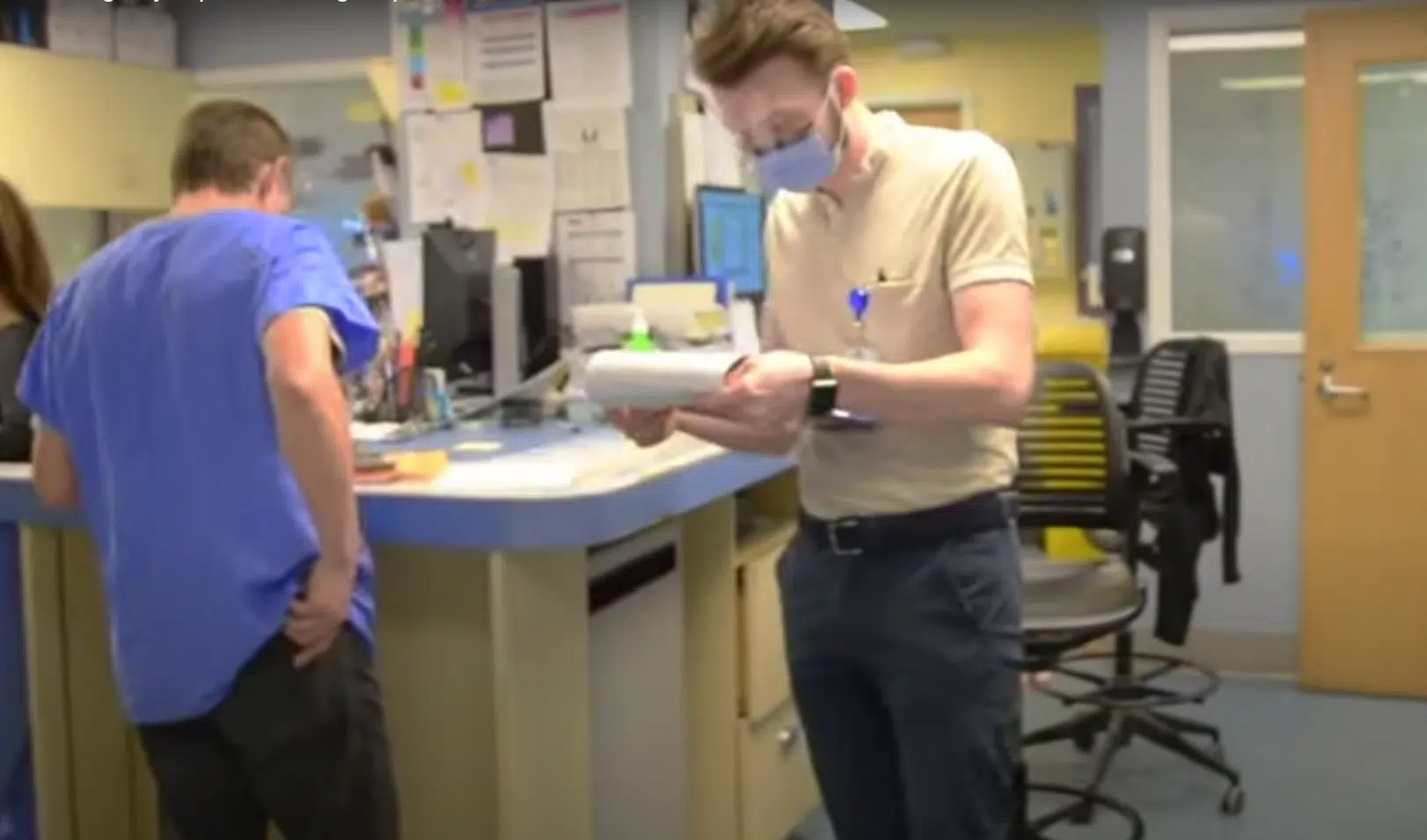Staff are feeling the pinch at the IWK Children’s Hospital as the emergency department sees a dramatic uptick in patients.
Managing emergency department doctor, Katrina Hurley, says normally in May and June staff would see 100 patients or less a day.
This year, they’re averaging 140 kids a day.
“It used to be that I could rely on data to say ‘I expect Monday to be the busiest day of the week,’ because traditionally that has always been the case. But it’s not the case anymore, it seems like any day could be a busy day.”
The IWK Emergency Department (ED) has been over capacity for the last six weeks.
May 2022 has been the busiest month on record for the department and June is on pace to surpass those numbers.— IWK Health (@IWKHealth) June 14, 2022
The IWK uses a triage system to assess patients, ranking the urgency of their problem on a scale of one to five, with one needing emergency care, and five needing urgent, but not emergent, care.
Hurley estimates about 90 people who come in each day could receive care elsewhere, but the crunch to find family doctors in Nova Scotia means more people are ending up in emergency rooms.
“Some of those patients still need care in an emergency department because they might have a fracture or laceration that would be hard to get care for elsewhere, but a lot of those level fours probably could get care elsewhere – if that care was available.”
Staffing stressful, but not the root cause
They aren’t typically running shifts understaffed, but Hurley says that’s only because they’ve been pulling in staff from other units, asking staff to work overtime hours and changing staff schedules last minute to cover shortages.
“It’s a struggle every day to make sure we have enough staff in the department, but the difficulties we’re experiencing are largely not related to that. They’re more related to what is showing up.”
The relaxing of public health measures means there’s been an uptick in illnesses like diarrhea, hand foot and mouth disease, and other common ailments that masking largely cut down transmission of.
“It’s been a real challenge for staff… we’re not experiencing a break of any kind; we’re experiencing significant stress,” Hurley says.
But physical and mental stress aren’t the only problem, she says.
“I would also describe a sense of moral distress: when you’re doing your very best to do your job but you can’t meet the needs of everybody who’s there.”
They’ve been in touch, health minister says
At a media availability on Tuesday, Health Minister Michelle Thompson was pressed about whether she was aware of the situation.

Health Minister Michelle Thompson addressed the influx of patients at a media availability on Tuesday.
“We have increased capacity by funding a couple of nurse practitioner positions and it’s my understanding that we’ve also increased physician allocation during this surge time.”
The surges are best dealt with at an operational level, Thompson says, as employees know the situation better. The provincial government is open to working with them and will clear lines of communication open, she says.
Thompson also explained the surge is being driven by a later-than-usual sick season, because masking mandates continued through the early spring – and into mid-May for schools.
There’s no way to know what would help the situation in the IWKs emergency room, Hurley says, because the healthcare system is complex and extends beyond hospital walls.
“A simple system is like baking: I know if I put these ingredients together this will happen. The healthcare system is not like that: you could throw some ingredients together and it could be magic, or it could do nothing at all”
Parents bringing in a sick child should prepare for a wait if the illness or injury doesn’t pose immediate health risks, Hurley says.









